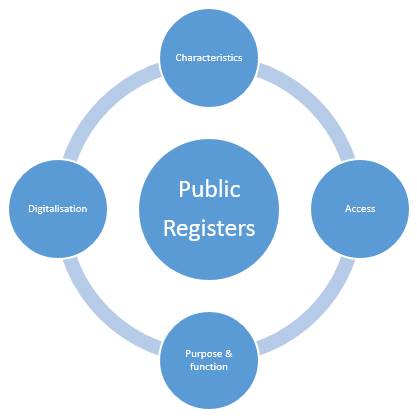Research Library
Public Registers and the Professions
Most public registers in Australia should be open registers though this is not necessarily the case, particularly because of privacy concerns, cost issues, and technology challenges.
Overview
Public registers are authoritative lists of names, events and transactions maintained by regulators and other public authorities that provide access to information by members of the public, professionals, business organisations and other interested parties. Well known examples include the electoral roll, land registers , the register of deaths and marriages, the companies’ and organisations register and the register of interests of members of parliament. These registers are established pursuant to either federal or state laws that may occasionally also require registers to be maintained by private firms.
Accessing digital public registers and utilising their content is a regular part of many professional practices, particularly lawyers and accountants. This guide explores the content, role and function of contemporary public registers through four issues:
- The characteristics of public registers;
- The issue of access to public registers;
- The regulatory purpose and function of public registers; and
- The future of public registers in the age of digitalisation.

